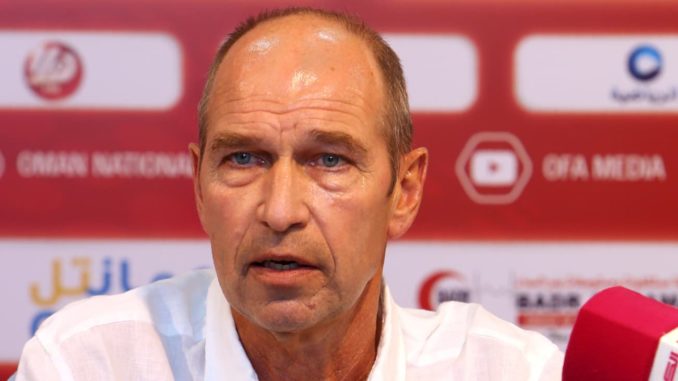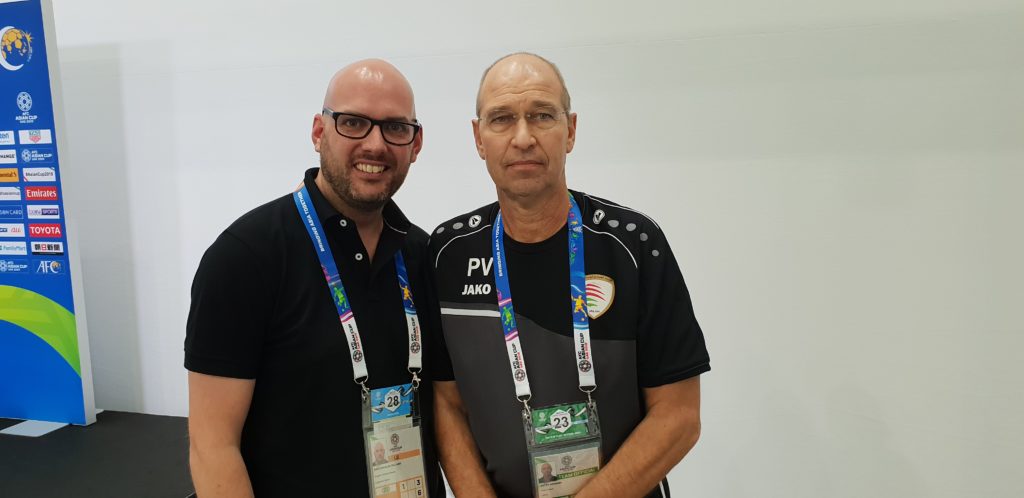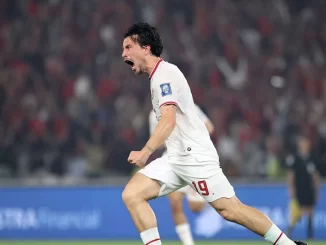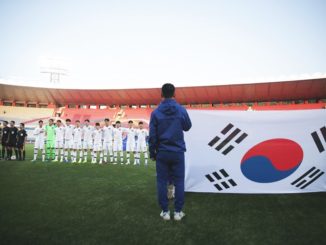
The world, not just the footballing world, but the world has lost a special soul.
Pim Verbeek was many things – footballer, coach, husband, father, grandfather and friend. Anyone who ever had the delight of meeting the affable Dutchman will all attest to the man he was – warm, welcoming, respectful and great company.
He had a way of making you feel important, in a world full of people (especially in football) that are often full of their own self importance. But not Pim.
He especially loved his family and our last conversation earlier this year was about how much he was looking forward to spending time with his family, especially his children and grandchildren, having left his post in Oman.
I only had the pleasure of meeting Pim once, earlier this year at the AFC Asian Cup. We had conversed over the phone and WhatsApp many a time in the years previous, but our paths finally crossed at the Asian Cup.
I was assigned to cover the final group stage game between Oman and Turkmenistan, and as is custom attended the pre-match press conference the day before the game. Once the formalities were out of the way, I rushed forward to say a quick hello before he made his way to the team bus.
So often in these situations the coach does not want to be there and can’t get out of there quick enough. Not Pim.
He caught my eye, and before I could even get a word in, he bellowed out a warm, “Hi Paul, how are you? Lovely to see you!”
It was as if we were old friends catching up, not meeting for the first time.

You meet and interview a lot of people in this caper, and most are courteous in their dealings, but it’s also more often than not rather impersonal. Quick small talk, interview done, end of story. And there’s nothing wrong with that, but that wasn’t how Pim operated. He was unique. He cared and he brought you into his world.
Twenty-five minutes later we were still standing there, in the bowels of the media centre at the Mohammed bin Zayed Stadium in Abu Dhabi, talking about all things football, because for all that Pim was, at his core he was a football lover. He still had that child-like love for the game that we all once had.
For a man in his 60s, who had seen it all and watched more football games than he could care to remember, he still wanted more. He lamented the fact that the Asian Cup wasn’t broadcast on TV in the UAE, and that he couldn’t relax at the end of the day (probably with a red wine), sit down in his hotel room and watch some football. Not just to scout opponents, but just to enjoy the tournament.
For him, it didn’t feel like a football tournament. And he was a man that experienced plenty of football tournaments.
With South Korea he was assistant to Guus Hiddink for the 2002 FIFA World Cup when the Koreans shocked the world to make the semi final, before he took the main job and guided the Taeguk Warriors to the semi final of the 2007 Asian Cup.
Not long after he was appointed head coach of Australia, just weeks out from the start of World Cup qualifying. While some came to criticise his methods, claiming he was too pragmatic and defensive, his Socceroos side eased their way through qualifying for the 2010 World Cup, qualifying with two games to spare.
In South Africa, he equaled the record of his predecessor and countryman Guus Hiddink in 2006 with one win, one draw and one loss. Four points collected, but unlike 2006 Australia missed out on advancing to the Round of 16 on goal difference.
It was that one loss to Germany in the opening game that has come to, unfairly, define his time with the Socceroos. He was, for a while, persona non grata in Australia. He was, along with Holger Osieck, held up as an example of foreign coaches who didn’t get Australia. But the feelings weren’t mutual.
In one of our many interviews, he told me that his greatest achievement across his long and decorated career was not making the semi final of the 2002 World Cup with Korea, but qualifying Australia for the 2010 World Cup. Those years in Australia were the best of his life.
“Personally I had a fantastic time,” he told me in an interview for SBS The World Game back in 2017.
“The federation (FFA) was very supportive, my staff was outstanding. So if you look at that there was nothing to complain about.
“The qualification rounds we did, it could not be better. I think at the moment it’s more difficult. We didn’t lose one game, I think two games before the final qualification game we were already qualified, we got four points at the World Cup, so if you look at that it was the same like 2006.
“People probably think after 2006 going to the final 16 with four points that automatically it means you’re going to the semi-finals. In football that’s not so easy to do, so maybe the expectations were a little bit high.
“I have no problem with the people who have high expectations and they are critical, it’s not my problem. I had a fantastic time, I think we did a great job and I am looking back with a lot of pleasure. It was a fantastic part of my life.”
In more recent times, as coach of lowly Oman, he again showed his quality, guiding the Gulf nation to the 2017 Gulf Cup and then to the knockout rounds of this year’s Asian Cup – the first time the Sultanate had ever done so.
It was the Gulf Cup win that those in the Sultanate will best remember him for. Against the more fancied sides of the region, the likes of UAE, Saudi Arabia and Qatar, Oman defied the odds to win just their second ever Gulf Cup title.
“The celebrations in Oman were unbelievable,” the then 61-year-old told me an interview for Arab News.
“I heard immediately after the game they were even bigger than when we arrived the next day, because nobody expected it and then with the penalties and 120 minutes, it gave an extra feeling for the fans and for everybody.
“I know it’s not the biggest tournament in the world, but for the Middle East it is and if you see the celebrations around it then I’m very proud to win the Gulf Cup because that means for the rest of my life I will be connected with Oman, and that feels good.”
Pim left connections all around the world. No one who had the pleasure of meeting him ever had a bad word to say about him. In Asia, he has left an indelible legacy across a number of countries and in all of those countries, fans and friends alike are in mourning.
Rest well, Pim. You will be missed.
Photo: Asian Football Confederation




